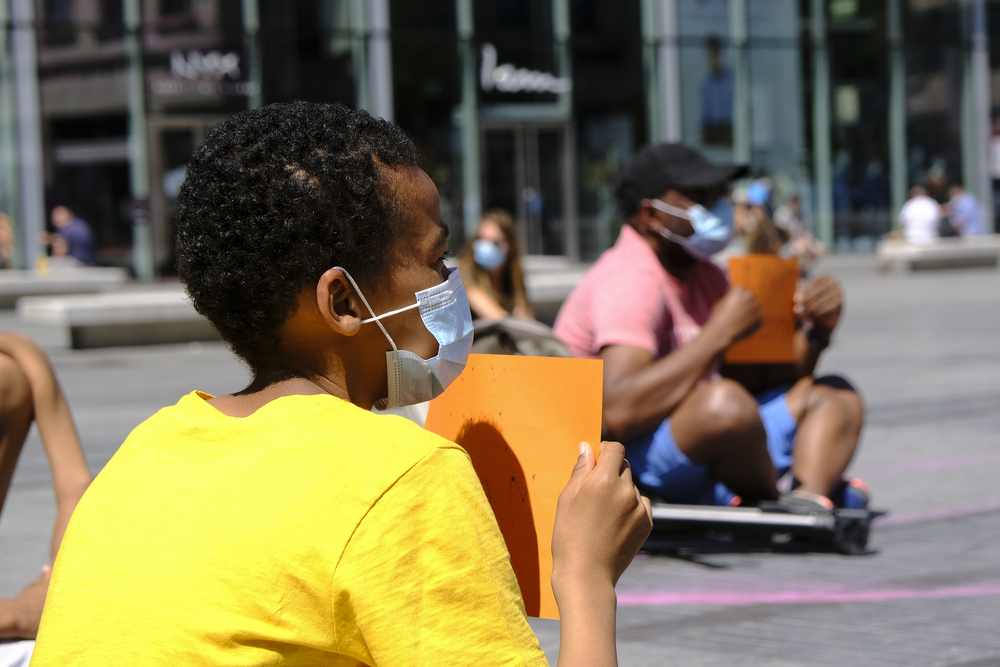The death of George Floyd should not have happened. An independent autopsy requested by the family concluded that Floyd died of asphyxiation from sustained pressure, disputing the Hennepin County medical examiner’s conclusion that he died from the combined effects of being restrained, underlying conditions, and possible intoxication. Based on footage now widely circulated, it is clear that Derek Chauvin unnecessarily knelt on the neck of a nonviolent offender who used a counterfeit $20 bill at a convenience store. According to the criminal complaint against Chauvin, the sustained pressure continued for 3 minutes after Floyd stopped moving and 2 minutes after another officer failed to find a pulse.
Chauvin has been arrested and was charged with 3rd-degree murder and 2nd-degree manslaughter, which has now been elevated to 2nd-degree murder. Protests ensued soon after Floyd’s death, engulfing many American cities. Many protesters are not simply mourning the wrongful death of George Floyd but are also targeting their demonstrations against the systemic racial injustice that permits regular police brutality against people of color.
“The protests are not necessarily about Floyd’s killing in particular, but about the savagery and carnage that his death represents,” Charles M. Blow writes. “It is an anger over feeling powerless, stalked and hunted, degraded and dehumanized.”
This anger over this degradation and dehumanization has manifested in peaceful protests, destructive riots, and reciprocal violence. As a video revealed Derek Chauvin’s neglect for Floyd’s pleas for air and his sustained pressure on the unconscious man, other disturbing clips posted on social media reveal violence by police against demonstrators and by demonstrators against other civilians and police officers. Viral clips are prone to misinterpretation because they exclude proper context and limit the complexity that often accompanies the captured event. Opinions can be formed on erroneous or partial recording of events. Even so, one thing is clear: the violence captured by these videos display violations of human dignity.
Such an observation may seem so banal, so obvious that it is not worth even mentioning. But at a moment when protesters are lashing out against racial injustice and violence is increasingly justified as an appropriate response, the assumption of human dignity is no longer obvious. Therefore, it is worth contemplating what respect for human dignity entails, how it is violated, and how it can be protected.
Human dignity is defined as “the recognition that human beings possess a special value intrinsic to their humanity and as such are worthy of respect simply because they are human beings.” It is thought to be inherent, indivisible, and inviolable. The dignity of each human being is a basic foundation of Christian social thinking and enjoys broad consensus in many cultures and philosophical traditions. While the term “dignity” as used is thought to be a product of the Enlightenment, the notion the term conveys predates the Enlightenment by many centuries. Other philosophers such as Thomas Aquinas and Cicero imply the inherent value of human beings in their writings on natural law.
It is this assumption of the inherent value of human beings that underpins human rights as a part of international law; dignity transcends state boundaries and is the fountain from which other rights flow. The concept features in the preamble of the Charter of the United Nations: “We the people of the United Nations determined […] to affirm the faith in fundamental human rights, in the dignity and worth of human persons, in the equal rights of men and women”. Human dignity is the first article of European Union Charter of Fundamental Rights: “Human dignity is inviolable. It must be respected and protected.” Countless constitutions of various countries contain some reference to dignity. Of course, simple observation demonstrates that mere codification of this ethical concept does not ensure its protection.
“[T]hat same human dignity is frequently, and deliberately violated all over the world,” Professor Paul van Tongeren observes. “When people are murdered, tortured, oppressed, or traded it is indeed a flagrant violation of their dignity”. Other violations are argued to include humiliation, instrumentalization, degradation, and dehumanization.
In response to the death of George Floyd and the resulting demonstrations, Robert P. George, an American legal scholar who has written about human dignity, wrote the following in a statement released on behalf of Princeton’s James Madison Program: “What unites us—what makes us ‘out of many, one’—is our shared commitment to principles we believe to be essential to the full flourishing of human beings, the principles of the Declaration and the Constitution. If we were to distill those principles to a core idea, it is, in my opinion, this: the profound, inherent, and equal dignity of each and every member of the human family. When we truly embrace that idea, we know that racism and racial injustice are unacceptable and must be resolutely opposed.”
Racism and racial injustice could then be understood as one of the many abhorrent effects of a failure to embrace the core idea of human dignity. The degradation and dehumanization of people of color observed by Charles M. Blow is another. Unjust murder is another. So, what can be done?
While institutional reforms are being demanded, social crises, such as the one the U.S. is enduring, also reveal the need for something more basic, more fundamental: ethics education. But this need must contend with the decline of philosophy, the relative absence of ethical training for students in academia, and the growing irreligiosity of America. The traditional reminders of human dignity are slowly dying and their death ought to be mourned, if not reversed. The U.S. is ablaze; a man was unjustly killed; peaceful protesters are met with force, tear gas, and rubber bullets; rioters exert physical violence towards their fellow civilians; a legacy of racism endures. Because this is what happens when we forget our dignity.

